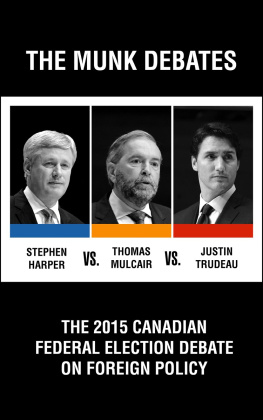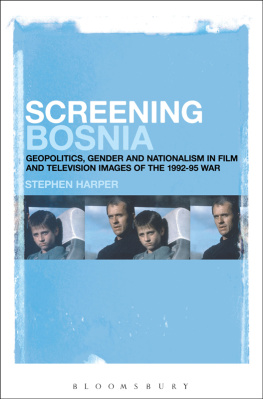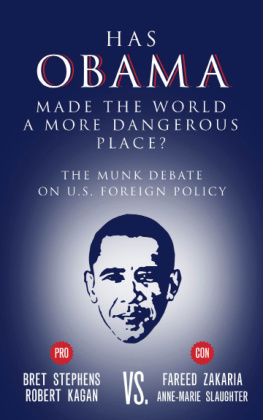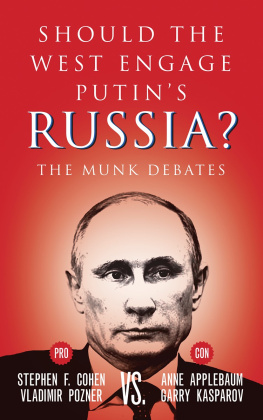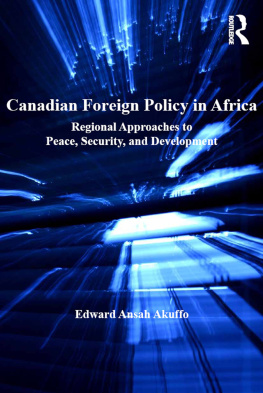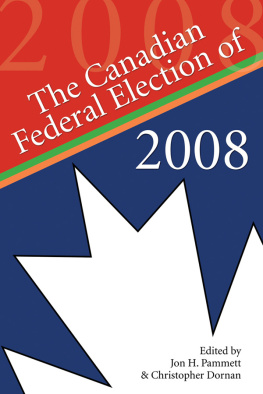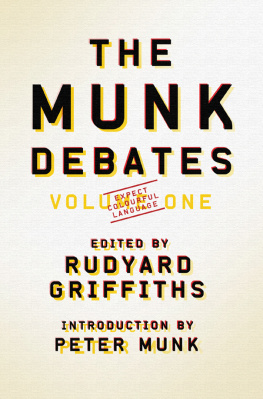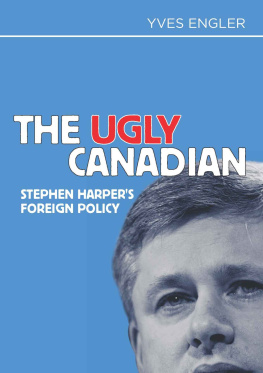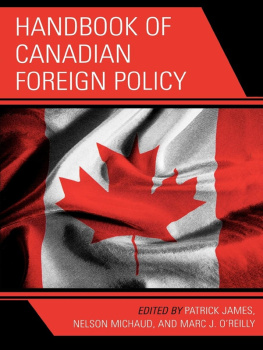Stephen Harper - The 2015 Canadian Federal Election Debate on Foreign Policy: The Munk Debates
Here you can read online Stephen Harper - The 2015 Canadian Federal Election Debate on Foreign Policy: The Munk Debates full text of the book (entire story) in english for free. Download pdf and epub, get meaning, cover and reviews about this ebook. year: 2015, publisher: House of Anansi, genre: Politics. Description of the work, (preface) as well as reviews are available. Best literature library LitArk.com created for fans of good reading and offers a wide selection of genres:
Romance novel
Science fiction
Adventure
Detective
Science
History
Home and family
Prose
Art
Politics
Computer
Non-fiction
Religion
Business
Children
Humor
Choose a favorite category and find really read worthwhile books. Enjoy immersion in the world of imagination, feel the emotions of the characters or learn something new for yourself, make an fascinating discovery.
- Book:The 2015 Canadian Federal Election Debate on Foreign Policy: The Munk Debates
- Author:
- Publisher:House of Anansi
- Genre:
- Year:2015
- Rating:3 / 5
- Favourites:Add to favourites
- Your mark:
- 60
- 1
- 2
- 3
- 4
- 5
The 2015 Canadian Federal Election Debate on Foreign Policy: The Munk Debates: summary, description and annotation
We offer to read an annotation, description, summary or preface (depends on what the author of the book "The 2015 Canadian Federal Election Debate on Foreign Policy: The Munk Debates" wrote himself). If you haven't found the necessary information about the book — write in the comments, we will try to find it.
Stephen Harper: author's other books
Who wrote The 2015 Canadian Federal Election Debate on Foreign Policy: The Munk Debates? Find out the surname, the name of the author of the book and a list of all author's works by series.
The 2015 Canadian Federal Election Debate on Foreign Policy: The Munk Debates — read online for free the complete book (whole text) full work
Below is the text of the book, divided by pages. System saving the place of the last page read, allows you to conveniently read the book "The 2015 Canadian Federal Election Debate on Foreign Policy: The Munk Debates" online for free, without having to search again every time where you left off. Put a bookmark, and you can go to the page where you finished reading at any time.
Font size:
Interval:
Bookmark:
CANADIAN FEDERAL ELECTION DEBATE ON
FOREIGN POLICY

House of Anansi Press Inc.
110 Spadina Avenue, Suite 801
Toronto, ON, M5V 2K4
Tel. 416-363-4343
Fax 416-363-1017
www.houseofanansi.com
policy : Harper vs. Mulcair vs. Trudeau.
Electronic monograph in HTML format.
ISBN 978-1-4870-0122-3 (html).
3. Trudeau, Justin, 1971. 4. Canada Foreign relations
21st century. 5. Debates and debating Canada. 6. Canada.
Parliament Elections, 2015. I. Trudeau, Justin, 1971, panelist
II. Harper, Stephen, 1959, panelist III. Mulcair, Tom, 1954,
panelist IV. Series: Munk debates
Cover photos: The Munk Debates
Transcription: Transcript Divas

Debate on Foreign Policy
Toronto, Ontario
Font size:
Interval:
Bookmark:
Similar books «The 2015 Canadian Federal Election Debate on Foreign Policy: The Munk Debates»
Look at similar books to The 2015 Canadian Federal Election Debate on Foreign Policy: The Munk Debates. We have selected literature similar in name and meaning in the hope of providing readers with more options to find new, interesting, not yet read works.
Discussion, reviews of the book The 2015 Canadian Federal Election Debate on Foreign Policy: The Munk Debates and just readers' own opinions. Leave your comments, write what you think about the work, its meaning or the main characters. Specify what exactly you liked and what you didn't like, and why you think so.

